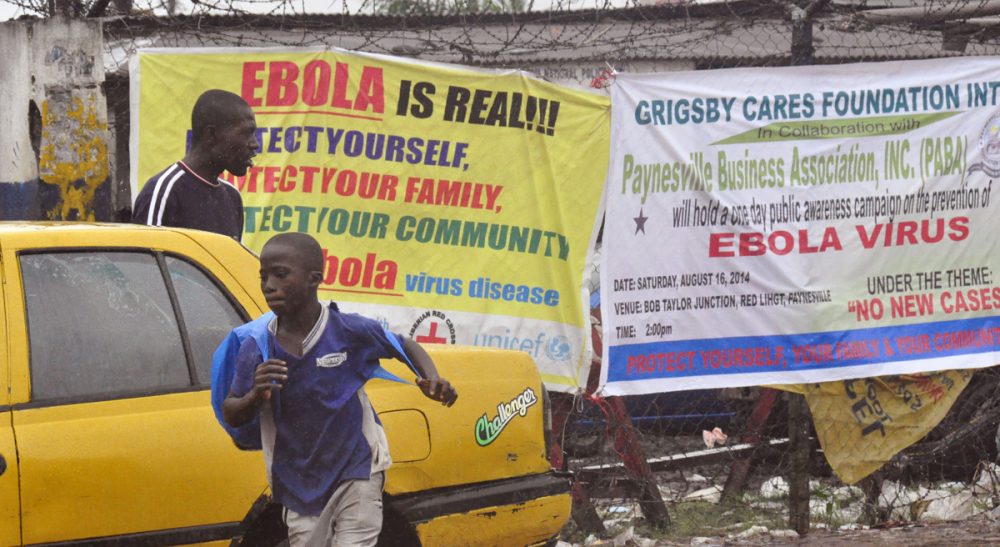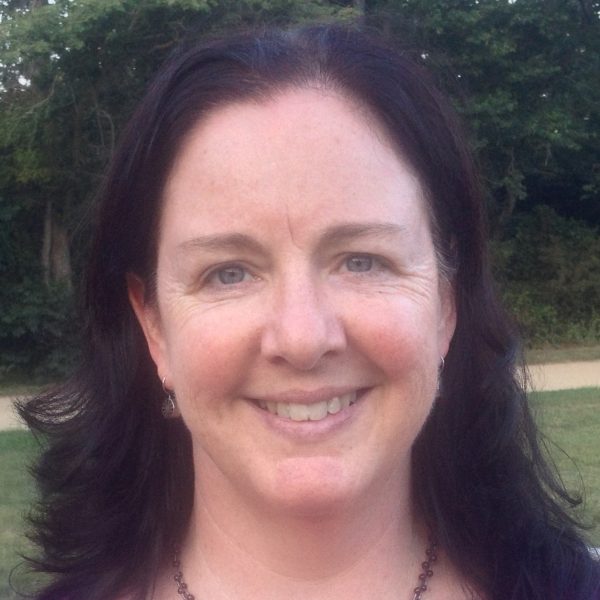Advertisement
Ebola And The Gap Between The Haves And Have-Nots In Global Health

Ebola is back, and meaner than ever. As of this writing, the most recent outbreak of the super-deadly hemorrhagic fever has infected more than 2,000 people, with more than a thousand dead. Centered in Guinea, Liberia and Sierra Leone in West Africa (with 12 cases in Nigeria), Ebola is slowly making its way elsewhere — so far, only within regions of the affected countries, but it is also speeding to the center of our worst fears and baser protective responses.
Ebola shows us just how wide the gap is between the global health haves and have-nots. In the have column, there are Dr. Kent Brantly and Nancy Writebol, American aid workers infected with Ebola, flown to the U.S. to be treated in a special infectious disease unit at Emory Hospital. They had already been given an experimental anti-Ebola drug not yet approved for human use. Of course these folks are literally good Samaritans — they work for Samaritan’s Purse, a Christian relief organization. They knew the risks and still cared for those in need, so no one begrudges them the best treatment available.
Fear is a bad teacher. But, the Ebola outbreak has lessons to offer about global public health.
In the have-not column are hundreds of dead and ill Ebola patients, alongside stories of undersupplied health facilities, scared doctors and nurses, mistrustful families, and abandoned hospitals. There’s also lax government enforcement of isolation of infected persons and quarantine of exposed groups. The World Health Organization (WHO) just approved the use of experimental drugs to be given to health workers with Ebola (with their consent, of course), but there are only a few doses available, with no prospects of large-scale production any time soon. No one even knows whether these new drugs are effective.
In health care, we’re always looking for a magic pill or new technology to save us. But in this case, the focus on experimental drugs — who gets them, how much there is of them, when will there be more — is a distraction from what the Ebola-stricken countries really need. And what is that? They need low-tech but highly effective materials like gloves, gowns, masks, mattresses, sheets, chlorine bleach, buckets and, alas, body bags for safe burial of the dead. These materials, used in concert with well-established public health protocols can be put to work to care for patients with Ebola, reduce the spread of the disease, and protect health workers, families and their communities.
Implementing public health protocols won’t be easy in part because of the current lack of materials, basic infrastructure and trained health personnel. Many foreign agencies are pulling out their medical staff for fear of infection.
Besides materials and personnel, we need an ample supply of community participation. Meaningful communication among health care, government and community stakeholders needs to be established for sharing information, values, priorities and needs.
Second, and most important, the Ebola-stricken countries desperately need a global infusion of trust. Right now, communities don’t trust the hospitals or health workers. There has been a rumor circulating in Sierra Leone that Ebola is a hoax designed to cover up cannibalistic rituals. In Monrovia, Liberia, there was looting of a quarantine center by some local residents, angry that people from other areas were brought into their neighborhood. They took infected sheets, mattresses and other materials, which are, sadly, likely to infect even more people. Foreign governments don’t trust officials in the affected countries. Air travel to and from the affected countries has either been restricted or shut down completely, guaranteeing economic losses in places that cannot afford them.
We need to help repair and build improved trust between the global health haves and have-nots through government aid to the stricken countries, and transparency in the ways that aid is determined and distributed. The WHO convened an emergency panel to discuss the ethics of administering experimental drugs, but this didn’t solve any problems. First of all, there is very little of the experimental drugs to distribute for the next several months. But worse than that, they didn’t include representatives from the affected countries. And, they didn’t discuss creating ethical guidelines for implementing controllable measures of quarantine of exposed groups and isolation of infected persons — all standard and accessible procedures. The WHO needs to turn its attention to marshaling representative panels of experts to help organize practical and feasible plans for containing Ebola, and continue facilitating funding necessary to provide materials and staffing for this complex undertaking.
Advertisement
We need to help repair and build improved trust between the global health haves and have-nots through government aid to the stricken countries, and transparency in the ways that aid is determined and distributed.
At the community level, communication and dialogue need to be established for residents to trust officials enough to support systems of disease surveillance, isolation and quarantine. This also means respecting and responding sensitively to local cultural practices that are at odds with government-mandated disease protocols. This has been handled in previous outbreaks. It is already happening in small ways now. Red Cross workers in Sierra Leone are working with local leaders and traditional healers on ways to combine safety and respect for the dead. In Guinea, the Red Cross is allowing families to watch the burials of their loved ones from a safe distance and take cellphone photos of them, since they are not allowed to prepare bodies for burial.
Breaking the chain of infection requires forging new links of respect and trust.
Related:
